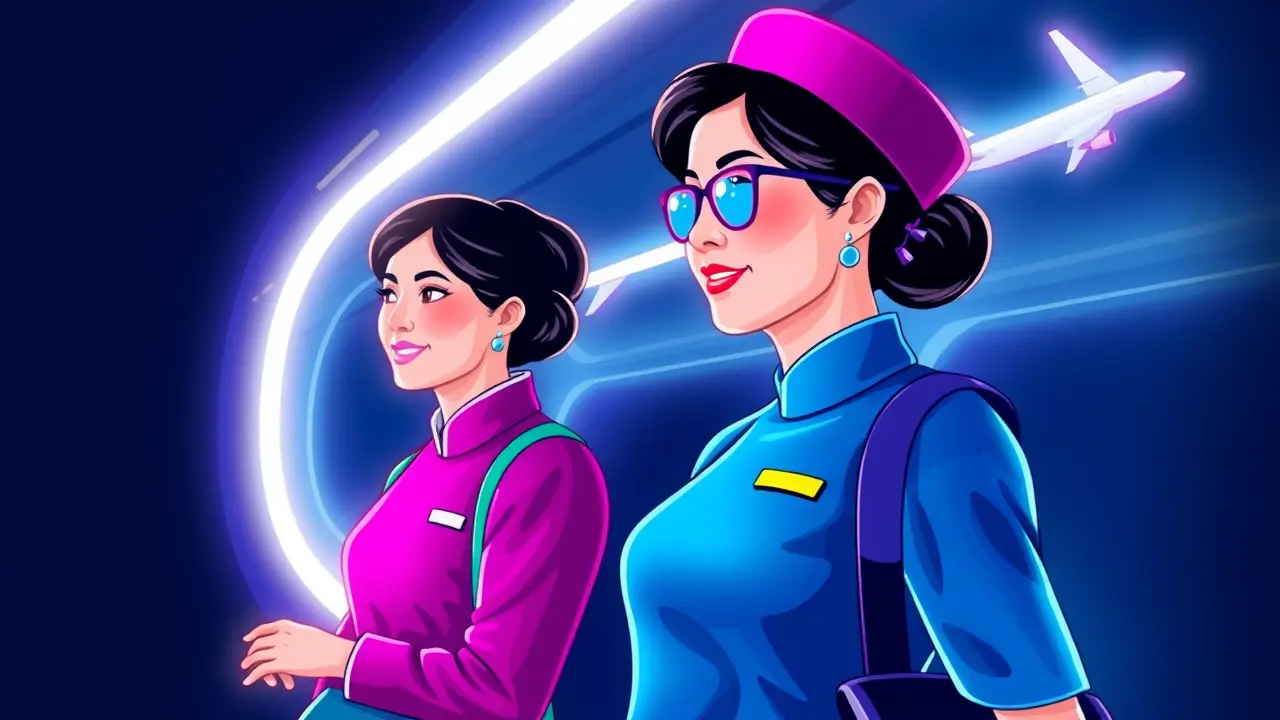
Othertransport & aviationAirlines and Airports
Chinese Airline Criticized for 'Air Aunties' Hiring Plan
LA
Laura Bennett
1 day ago7 min read
In a move that has ignited a complex social conversation far beyond the aviation industry, Shanghai-based Spring Airlines, China's pioneering budget carrier, recently unveiled a recruitment strategy that feels both quaint and deeply provocative. Dubbing their new hires 'air aunties,' the airline is specifically targeting married women and mothers, aged 25 to 40, for flight attendant roles, a demographic traditionally sidelined in an industry that famously prizes youth and an unmarried status.This isn't just a hiring notice; it's a cultural Rorschach test, revealing the deep-seated tensions within modern Chinese society regarding age, gender, and the value of experience. The online backlash was swift and fierce, with many critics lambasting the term 'auntie'—'ayi' in Mandarin—as inherently condescending, a label that, while sometimes used affectionately, often carries the weight of diminishing a woman to a matronly, and perhaps less dynamic, figure.Yet, to dismiss this initiative as mere corporate tone-deafness is to miss the richer, more nuanced human story unfolding here. Imagine the applicants themselves: women who may have stepped away from their careers to raise families, now seeking to re-enter the workforce, bringing with them a reservoir of patience, emotional intelligence, and crisis-management skills honed in the trenches of parenthood—arguably the perfect toolkit for handling a plane full of anxious or disgruntled passengers.This policy directly challenges the 'youth above all' ethos that has long defined not just Chinese airlines but service industries globally, echoing broader, if halting, shifts towards age-inclusive hiring seen in Western corporations. However, the initiative is also tangled in the paradoxical expectations placed on Chinese women, who are simultaneously encouraged by state policy to have more children to combat a demographic crisis and then often face a 'résumé gap' penalty when they do.Spring Airlines, in its characteristic budget-minded fashion, might also be making a coldly pragmatic calculation; older, married attendants may be perceived as more likely to accept lower pay and more stable in their roles, reducing turnover costs. But the public reaction, a volatile mix of support and derision, speaks to a collective grappling with identity.Is being an 'auntie' a badge of honor, signifying wisdom and reliability, or is it a patronizing box that reinforces outdated stereotypes? By interviewing women who are considering these roles, one hears stories not of grievance, but of opportunity—a second act, a chance to see the world after years of domestic focus, a desire to prove that competence doesn't have an expiration date. This narrative isn't confined to China; it resonates with global debates about the invisibility of middle-aged women in the workforce and the search for meaningful employment later in life. The ultimate success or failure of Spring Airlines' 'air aunties' will therefore be measured not just in passenger satisfaction surveys, but in whether it can reframe a term of potential disrespect into one of professional respect, transforming a cabin crew into a testament of life experience soaring above the clouds.
#Spring Airlines
#flight attendants
#hiring controversy
#air aunties
#labor practices
#social media backlash
#featured
Stay Informed. Act Smarter.
Get weekly highlights, major headlines, and expert insights — then put your knowledge to work in our live prediction markets.
Comments
It’s quiet here...Start the conversation by leaving the first comment.
© 2025 Outpoll Service LTD. All rights reserved.